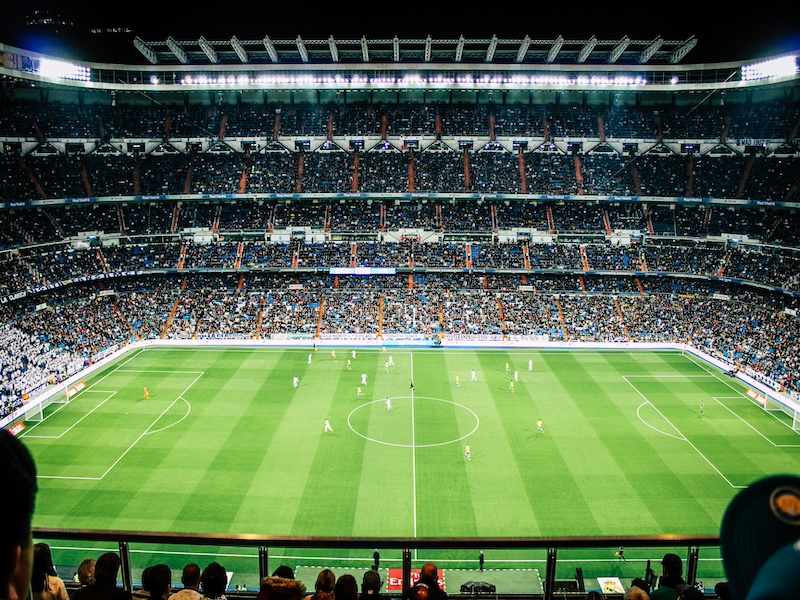Football clubs have been hallowed out and sold to the world
Football has the power to inspire, to send people into wild frenzies of uncontained joy, to break hearts full of hope. Football has the power to break down barriers and unite countries. Football even has the power to end wars. The beautiful game is so named for a reason. It’s by far the world’s most popular sport. It inspires fanatical loyalty that is akin to a religious following. But, and it’s a very big but, there is a massive problem with the beautiful game. And that problem revolves around the ownership of clubs.
Inevitably with the game being so popular, it generates a lot of money. Fifa earned $7.5 billion from the 2022 World Cup. The English Premier League recently agreed to a £6.7 billion television deal that will run for the next four years. It’s revenue generated from television coverage that has changed the footballing landscape, none more so than in England.
Sky Sports has been broadcasting live football since 1992, the inaugural season of the Premier League. That proved to be a watershed moment. More televised games have led to more money flowing into the sport. Now big clubs can take advantage of a range of revenue streams. From lucrative sponsorship deals, to selling merchandise to global fan bases, to offering luxury corporate hospitality, the money has continued to flow in.
This has led to an explosion in revenues, which has seen a dramatic increase in transfer fees and player wages. It has also led to an explosion in the valuation of football clubs. To give a bit of context, Ken Bates famously bought Chelsea football club for £1 in 1982. He went on to sell it to Roman Abramovich in 2003 for £140 million. Abromovich has since been forced to sell the club for £4.25 billion in 2022.
So many clubs are now owned that we all take it for granted. Private ownership is what defines capitalism as an economic system. So it seems reasonable that football clubs should have such a model. Lured by the potential for growth and lucrative returns, ten of the twenty clubs in the premier league are owned by American billionaires. Others, like Newcastle and Manchester City, are owned by countries. So what’s the problem with American billionaires and countries like Saudi Arabia and Qatar owning football clubs?
Firstly, counter to the prevailing argument that the Premier League is the most competitive in the world, ownership has created a closed shop when it comes to who wins. Out of the 50 clubs that have participated in the Premier League, only seven have won it. Four teams have won it more than once. So in the last 32 editions of the competition, it’s become somewhat predictable.
A lack of competition is an outcome of a simple dictum— the teams that spend more, win more. Money is not the only factor when it comes to success, but it’s no coincidence that the same teams remain competitive. This is a problem with capitalism generally. Rather than increasing competition in markets, ownership leads to the richest players aggressively doing all they can to take as big of a market share as they can. Monopolies form leading to less competition.
Football is a microcosm of the wider economy. The richest clubs buy all of the best talent. They also suck up all of the best young prospects because they have invested in the best facilities.
Capitalism has sunk its teeth into football and it now has a vicelike grip. But selling your soul comes with a cost. As we’ve said, football triggers a range of emotions like nothing else. Football clubs have strong values and traditions intertwined with the people and cities or towns from which they were born. Those clubs are at the heart of communities.
Football clubs are not businesses, but because nothing is off limits when it comes to capitalists’ desire to make money, they are now run as businesses. The fundamental issue is that clubs have become isolated from the communities that created them, which embody them. They have become global brands with a global presence, hollowed out and sold to the world. They have lost their identity, all in the interests of owners who care little for values or tradition. So, accounting for their cultural and social significance how could things be done differently?
Well, the goal of the overall economy is to achieve economic growth. The profit motive is what drives each company to achieve growth. Companies increase profits (and output) by producing more and more stuff, which compels consumers to buy more and more stuff. It’s a cycle with no end. The issue is that producing more requires increasing energy and resource inputs from the natural world. This leads to all kinds of undesired impacts, like greenhouse gas emissions. It’s a dynamic that can’t be sustained because our influence on the natural world has become so enormous that we’re changing the environmental conditions we depend on. Hence, why society is unsustainable in its current form.
So what does this have to do with football? Sustainability is often viewed with an environmental lens, but what’s clear from looking at football is that the economy is all-consuming. Nothing escapes its grip. Every part of society is organised in service of capitalism. But if you change the economy, which many commentators argue is the only way to create sustainable societies, then institutions within society will be organised in radically different ways.
One such economic idea for how to create sustainable societies is a degrowth economy. A degrowth economy aims to increase well-being while reducing material flows of energy and resources into the economy. How would shifting to a degrowth economy change our relationship with sport?
In such an economy social success would be measured based on increasing well-being, not assuming that increasing GDP must be leaving everyone better off. Football teams create high social value and contribute to people’s well-being. Their role as vital cultural centres and the hearts of communities should be recognised as such.
A way to do this is to make sports teams non-profit entities. Sports teams should be seen in a similar light to charities or religions. They should not be run as businesses that are not owned by one person or a small group of people, but by members who all have a role to play in its success. Football clubs should be at the heart of communities, not isolated from them. On top of this, the current imbalance in football is due to a failure of regulation. The introduction of wage caps and spending caps would create tighter controls and level out the playing field.
We could bring back the good times, but not while clubs are owned by those who are driven by the profit motive. The problem is that the end of capitalism doesn’t seem close, does it? So the ownership model will continue to dominate. While it does things are going to get a whole lot worse. In their pursuit of ever-increasing revenues, it seems only a matter of time before a controversial European Super League forms, which would just be another nail in the coffin of what was once a beautiful game.
If there is hope on the horizon it’s that capitalism’s heyday is over. The current state of affairs won’t continue, because it can’t continue. Changes to the natural world will see to that. Some day, in the not-too-distant future, the economy, and with it society, will be unrecognisable. When that happens fans just might be able to reclaim the beautiful game from those who stole it.



